Key Difference Between Coaching and Mentoring
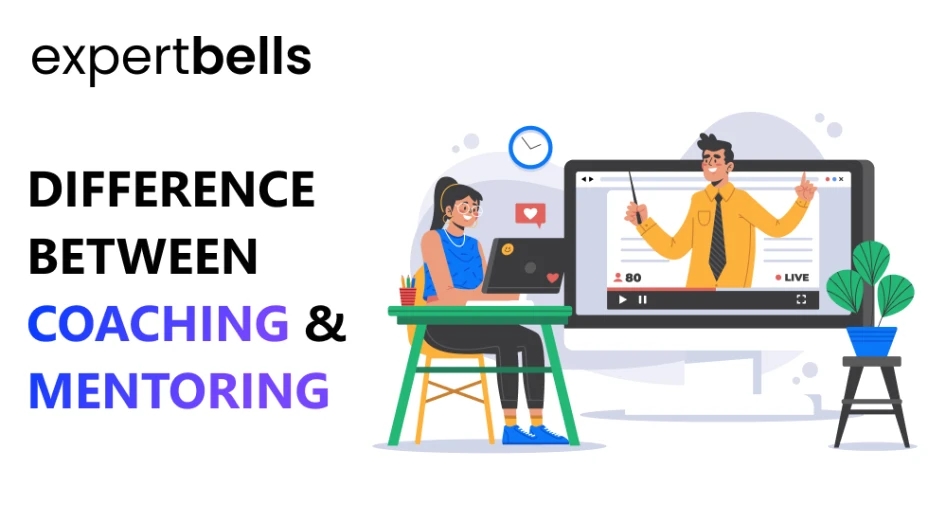
Most people use the terms coaching and mentoring interchangeably. But in reality, they are not as same as you think. However, these methods aim to support people and improve their personal and professional lives. But they are different concepts with many differences.
If you are struggling to understand the difference between coaching and mentoring, you must know both are excellent methods for achieving your goals with expert guidance. The coach guides through asking meaningful questions and setting objectives, whereas the mentor provides advice, shares experiences, and acts as a role model in a mentor-mentee relationship. However, this is not all about them!
In this post, we’ll explain coaching vs. mentoring so you can learn about the key differences between both approaches. Let’s get started!
What is Coaching?
Coaching is a learning process in which a qualified coach provides training and advice to learners. Coaching is a structured program that inspires coachees to maximize their personal and professional potential. Today, when small and large businesses seek coaching, it helps them solve their specific concerns and identify their strengths and weaknesses. Coaching assists them in gaining knowledge of the professional fields, defining practice goals, and achieving them in minimum time.
Taking a one-on-one consultation with an experienced coach makes you aware of your performance in specific activities. They work with you to identify your skills and knowledge that help them create a proper path for your growth. They encourage you to focus on your work and provide critical feedback to improve your work fluency. That ultimately leads to achieving your business-related goals.
For example, a technology coach helps a startup founder resolve their technology concerns. He installs contemporary tools and software in the systems and also educates startup founders about them. The focus of the coach is to let their client use the latest technology to boost the sales figures.
What is Mentoring?
Mentoring is when an experienced person provides guidance, advice, and support to someone who is generally less experienced. Mentoring is a long-term relationship that helps you grow your overall personal and professional development.
A mentor takes a holistic approach to guide the mentee. It is a highly personalized approach in which the mentor advises the mentee according to their own experience and knowledge. A successful mentorship always incorporates mutual trust, respect, and open communication.
For example, a business person runs a new business. He hires a business mentor who helps him to plan and design growth strategies for better business outcomes. The mentor shares his personal experiences and guides how to navigate the company culture.
What Skills are Required for Coaching?

A business coach is just like navigators who guide how one can get what they need. They have rich exposure to different industries that allows them to share their crucial insights and knowledge on developing and fulfilling your goals. A competent coach teaches you how you can adapt and adjust your strategies for satisfactory results. These are the key skills required for coaching:
Active Listening
A business coach must be someone who pays close attention to the coachee’s words. They should carefully understand your concerns and body language to identify your perspective.
Effective Communication
Successful coaches always ask open-ended, thought-provoking questions that provide in-depth insights about the coachee.
Empathy
Empathy is crucial to build a strong bond between the relationship. If you are a coach, be empathic in front of your coachee and understand their feelings to build a trusting relationship.
Problem-Solving
A career coach must be a problem solver. They should be able to identify deeply rooted problems, analyze answers, and provide the best solutions.
Goal-Setting
They should be skilled enough to define or refine clear and achievable goals.
Adaptable
They can adjust their coaching style based on the coachee's unique needs and situation.
Patience
A good coach never forces their decision on their coachee; rather, they allow the coach to take the time and space to learn and grow at their own pace.
Practical Feedback
Providing practical and constructive feedback where it is needed is a crucial feature of a good coach.
What Skills are Required for Mentoring?
Mentoring from a business mentor is a personalized approach that monitors and supports the mentee. They are successful people, with a lot of success and failure stories to share. They supervise their mentee and assist them in achieving and overcoming certain challenges. Here are some key points that you required for mentoring:
Clear Communication Skills
A successful mentor should also be a successful communicator who can effectively articulate their thoughts and ideas. That will help the mentee fully understand the guidance that is given.
Good Listener
Attentive listening shows that the mentor is genuinely interested in what the mentee is saying. It helps accurately understand the needs and specific challenges of mentees.
Relevant Experience
A mentee should be someone who has a wealth of experience in your niche. That will help them to understand your concern, and they can provide valuable insight that suits you the best.
Great Interpersonal Skills
They should be someone who can create strong relationships with mentees. That enables open and honest conversations between both of them.
Avoids Micromanaging
As a mentor, you should give your mentee the freedom to explore and learn from their experiences, while also being ready to provide support when needed.
Appreciate Feedback
A career mentor always values feedback from the mentee to improve the relationship and ensure mutual growth and development.
Empathetic
Being professional is good, but a good mentor also focuses on showing their empathic part to make a strong relationship with the mentee.
Positive Attitude
Maintain an optimistic and encouraging demeanor that motivates and inspires the mentee to overcome challenges and pursue their goals.
What are the Similarities Between Coaching and Mentoring?
Coaching and mentoring, no doubt, have many differences between them. But before taking a deep dive into them, let’s talk about the similarities between both approaches:
- Successful coaching and mentoring require self-discipline and awareness.
- Both methods focus on the personal and professional growth of learners.
- Both methods require empathy, active listening, and the ability to give constructive criticism.
- Mentors and coaches who are successful are flexible and perceptive.
- A person with a lack of interstate will neither be a successful coach nor a mentor. This is why coaching and mentoring need commitment from all sides to succeed.
What are the Benefits of Coaching and Mentoring?
People may benefit from coaching and mentoring by developing their current abilities and learning new ones. Engaging in coaching or mentoring helps individuals gain confidence and become more successful in their fields. They manage the intricacies of their personal and professional life with the aid of both strategies. You can explore these points to learn about the benefits of coaching and mentoring:
Skill Development
Coaching and mentoring facilitate the learning of individuals. These strategies help them learn competencies that are necessary for career progression. For example, a coach can teach you leadership skills that will help you manage your business effectively.
Encouragement and Confidence Building
While running your business, sometimes difficulties demotivate you. Everyone experiences it, and in this case, both coaching and mentoring provide encouragement and support. That helps to significantly boost an individual's confidence. Being together with a business coach or a mentor provides you with constructive feedback and positive reinforcement.
Insight and Self-Awareness
A mentor or a coach works closely with you. They help you identify your strengths and weaknesses. They open the door for self-discovery and encourage you to improve and work on those areas where your focus is important. This is a great advancement that helps learners grow quickly toward success.
Personalized Guidance
A one-on-one mentorship platform enables you to connect with top-notch coaches and mentors and receive personalized guidance based on your specific needs. Their custom approach ensures that you have a road map to focus on achieving long-term career success.
Coaching vs. Mentoring: What's the Difference?

Understanding the difference between coaching and mentoring is very crucial for your growth. To make a better choice for either of them, you must have a thorough understanding of these methods. If you want to know which strategy can be suitable for you, then you can read these points that will help you to make a better decision. So, let’s get started here!
Mentoring is Long-Term, Coaching is Short-Term
Mentoring is a long-term relationship between mentor and mentee. In this approach, the mentor takes a holistic approach to building a strong business and focuses on increasing your business sales. Bonding with a mentor can be more personal. In this approach, the mentor can share their personal and professional insights with the mentee.
Coaching, on the other hand, is time-bound and expects to reach specific goals within a set time frame. It is a more formal relationship. In this strategy, coaches share their specific business ideas and help their clients resolve their difficulties with their expertise and knowledge.
Mentoring is Supportive, Coaching is Performance-Based
Mentoring is more about providing guidance and support without formally assessing performance. Mentors provide guidance based on what they have learned in their journey. Their entire focus remains on the overall growth of a mentee.
Coaching is about tackling specific concerns, problems, and goals. A career coach can use performance reviews to measure the progress of their coachees.
Mentors generally play a non-directive role to avoid conflicts of interest, whereas coaches often specialize in targeted skill development and may be external to the mentee’s organization.
Mentee-Driven Mentoring vs. Coach-Driven Coaching
A mentee is in control of the mentoring relationship when they participate in it. They decide what they want to work on and what is the objective of their relationship. They approach the mentor with their concerns and ask for time to work through them.
While coaching, the coach sets goals for their clients. In this approach, the coach who has certain skills and expertise advises their coachees to improve their performance. However, their advice never goes beyond helping the worker develop the skill.
Mentoring is Personal, Coaching is Structured
Mentoring frequently focuses on individualized guidance tailored to the individual's needs and challenges, which often go beyond the company's overall goals. Mentors can also help mentees build professional networks with other mentors and business professionals.
However, with a standardized approach, coaching addresses specific skill gaps identified by the organization. Coaching is about dealing with specific concerns that are less about building networking. It coaches create a structured program and help you to achieve your goals within a specific time frame.
Mentoring is for Holistic Growth, and Coaching is for Skill Improvement
Mentoring focuses on overall growth in which a senior mentor helps in achieving the goal of the mentee. It's about learning from the knowledge. It often involves unexpected lessons and learning that aim for your development.
Coaching targets specific skill enhancements that consist of structured lessons that aim to identify room for improvement and explore new approaches. Coaching helps in achieving measurable skill development. They change mindsets and boost confidence in achieving specific goals.
When a Mentor is Best for You?
If you want to go beyond just improving your skills, a mentor is the best fit for you. You can get in touch with a more experienced person in a mentorship program. Mentoring is invaluable when you're starting a new business or job. Mentors can help you avoid repetitive mistakes and challenges and open new opportunities because they already walk on the path in which you are walking. They take a 360-degree approach in which they just not guide you but encourage you to learn to come out of your comfort zone. They assist you in building your professional network. They represent someone who contributes to your overall performance and long-term business growth.
When a Coach is Best for You?
If you want to get support in resolving a particular concern in your business, a coach is the best solution in this situation. Your concern can be related to any specific skills or achieving some particular goals in your business. Connecting with a coach is a more formal relationship in which you have a bit of space to do things on your own as well. It is a short period of contraction during which a coach provides you with targeted guidance and helps you improve in certain areas. They can also refine your strategies and provide suggestions for your improvement. If your aim is clear and you want guidance in resolving any particular concern, a coach can be an ideal option.
A Final Word
We discuss the key differences between coaching and mentoring. We understand that both methods are effective in improving, growing, and achieving goals. However, it is recommended that before turning to either method, you must be clear about why you need them. Also consider your budget, business objectives, and your difficulties; if you want guidance from a coach or mentor. Overall, turning to either of them with a clear understanding will help you to achieve your desired results and expectations.
Related Articles

Conversion of Private Limited Company into Public Limited Company
A private company is a business entity held under private ownership. The company may issue stock and have shareholders, but company's shares do not trade on public exchanges like BSE or NFT and are not issued through an initial public offering (IPO).
Leave A Reply
Your email address will not be published. Required fields are marked *
Most Popular Blogs
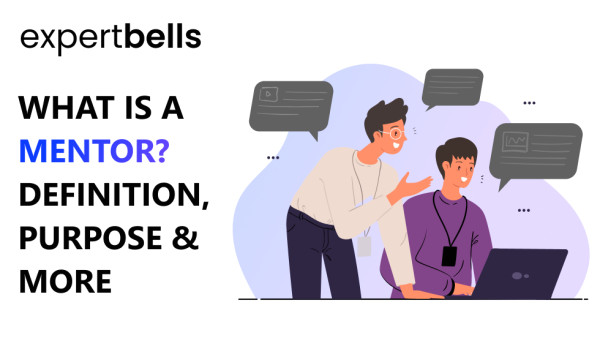
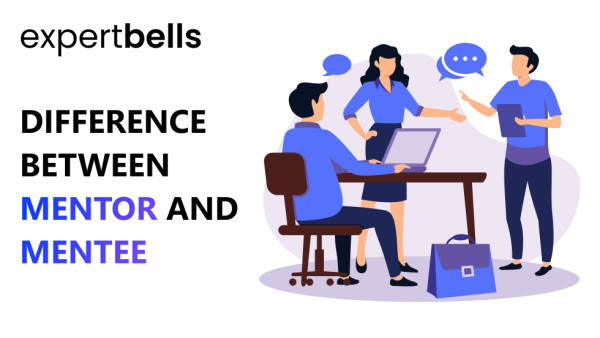
Difference Between Mentor and Mentee
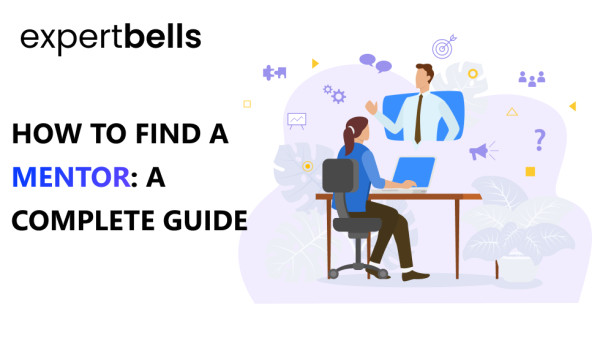
How To Find A Business Mentor: A Complete Guide
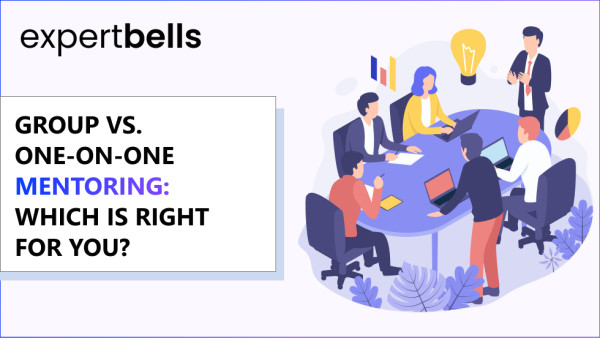
Group vs. One-On-One Mentoring: Which is Right for You?
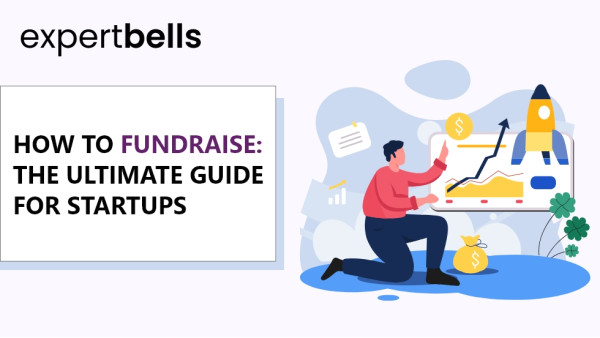



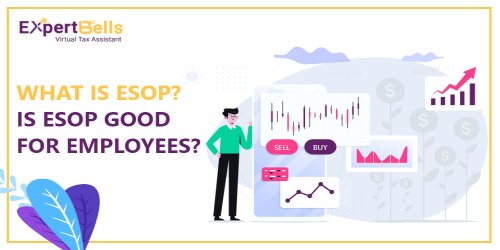
5 Comments
Lorem Ipsum is simply dummy text of the printing and typesetting industry. Lorem Ipsum has been the industry's standard dummy text ever since the 1500s, when an unknown printer took a galley of type and scrambled it to make a type specimen book. It has survived not only five centuries, but also the leap into electronic typesetting, remaining essentially unchanged. It was popularised in the 1960s with the release of Letraset sheets containing Lorem Ipsum passages, and more recently with desktop publishing software like Aldus PageMaker including versions of Lorem Ipsum.
Lorem Ipsum is simply dummy text of the printing and typesetting industry. Lorem Ipsum has been the industry's standard dummy text ever since the 1500s, when an unknown printer took a galley of type and scrambled it to make a type specimen book. It has survived not only five centuries, but also the leap into electronic typesetting, remaining essentially unchanged. It was popularised in the 1960s with the release of Letraset sheets containing Lorem Ipsum passages, and more recently with desktop publishing software like Aldus PageMaker including versions of Lorem Ipsum.
Lorem Ipsum is simply dummy text of the printing and typesetting industry. Lorem Ipsum has been the industry's standard dummy text ever since the 1500s, when an unknown printer took a galley of type and scrambled it to make a type specimen book. It has survived not only five centuries, but also the leap into electronic typesetting, remaining essentially unchanged. It was popularised in the 1960s with the release of Letraset sheets containing Lorem Ipsum passages, and more recently with desktop publishing software like Aldus PageMaker including versions of Lorem Ipsum.